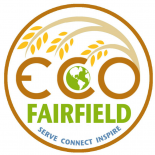June 5-9, 2013 – Fairfield, IA
Facilitated by:
John Ikerd & Lonnie Gamble
· Do you teach courses or conduct other educational programs related to sustainability?
· Do you feel less confident and comfortable with economic concepts than with the ecological and social aspects of sustainability?
· Do wish you could take a course to learn the essentials of economic sustainability without a lot of the charts, graphs, and economic jargon?
· Do you wish you could take such a course but feel you don’t have the time or money?
If your answer is yes to more than one of these questions, you should consider participating in The Crash Course in Economic Sustainability for Non-Economists in Fairfield, IA, June 5-9, 2013.
As a result, most people who conduct sustainability education programs skip lightly over the economic dimension of sustainability, hoping their students won’t ask too many questions. Some may refer their students to various sources that claim economic sustainability is actually more profitable than economic extraction and exploitation, or at least would be if we used government policies to “get the prices right.”
As a result, the sustainability movement continues to suffer from economic illiteracy. The Crash Course in Economic Sustainability addresses this problem directly and decisively.
· You will learn that you don’t need to be or become an economist to understand the basic principles and concepts essential for economic sustainability.
· You will be provided with a basic text book and discussion guide that explains the essential principles and concepts without resorting to economic jargon, charts, and graphs.
· You will learn that economic sustainability is inextricably interrelated with social and ecological sustainability, while economic value is fundamentally different from social and ethical values.
· You will discover that any thoughtful person, in collaboration with other thoughtful people, can learn the essentials of economic sustainability in a matter of days, not weeks or years.
· In the process of collaborative learning, you will learn ways of sharing what you have learned with your students or colleagues, without being self-conscious about what you have yet to learn.
Fairfield is a thriving, entrepreneurial community that is also paving the way for numerous sustainability initiatives in Iowa. In 2003, a report by the National Center for Small Communities selected Fairfield as a recipient of The Grassroots Rural Entrepreneurship Award, saying that the city “has become recognized as one the nation’s most entrepreneurial small towns.” Mayor Ed Malloy describes the city’s agenda for sustainability as “aggressive,” and includes a Green Strategic Plan covering everything from conservation, local farms, local food, alternative transportation, and bike paths and trails.
We hope to see you at the Crash Course in Fairfield this summer!
Sponsored by: Maharishi University of Management Sustainable Living Department


